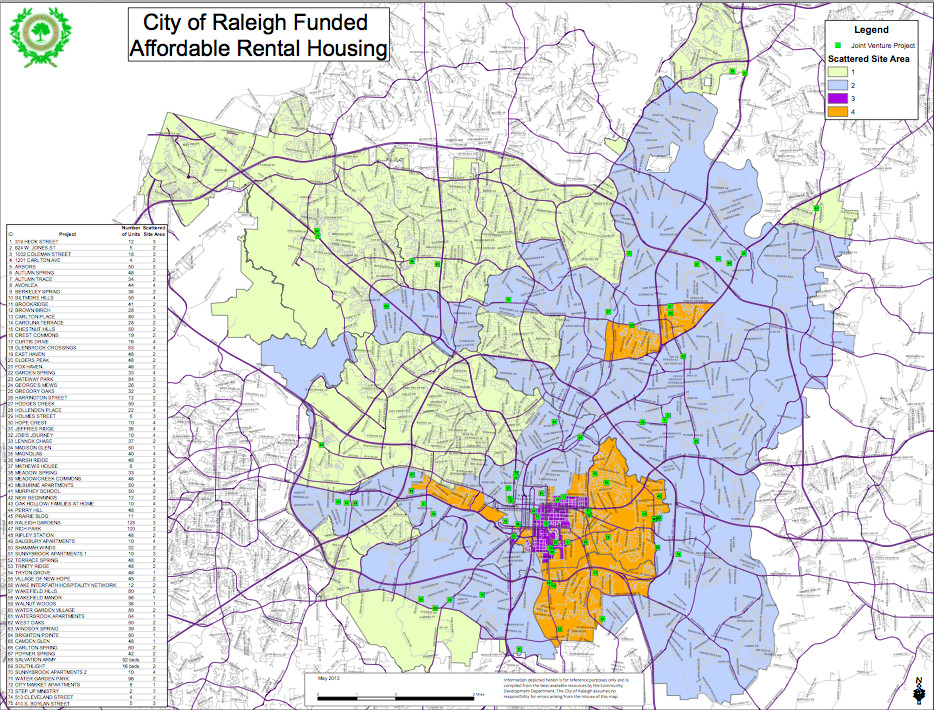The city is reviewing recommended updates to one of its affordable housing policies.
The Scattered Site Policy guides investments in affordable rental housing to minimize the number of city-subsidized units in areas with a high concentration of minorities or low-income families.
The policy has been scrutinized in the past by City Council members and residents, but will now go to the Council’s Budget and Economic Development committee for an in-depth review.
Both short- and long-term changes to the policy are on the table.

Image Provided by Wake County.
This color-coded map ranks areas of the city based on how much affordable housing is in the area.
The proposed short-term revisions involve updating the policy with the most recent data from the Census Bureau — as required by the policy itself — and adjusting the Joint Venture Rental scoring system. The city uses the scoring system to provide low-interest loans that can be used for the construction or rehabilitation of affordable multi-family housing.
The proposed long-term revisions include conducting a comprehensive review and revision of the policy in 2014 to incorporate pending U.S. Department of Housing and Urban Development (HUD) Affirmatively Furthering Fair Housing regulations. The revision will also include comments from stakeholders and City Councilors.
The Affirmatively Furthering Fair Housing regulations apply to cities that receive federal funding and will certify that they are “affirmatively” providing fair housing choice.
Shawn McNamara, program manager in Raleigh’s Community Development Department, said part of the assessment includes evaluating areas of high concentrations of both low-income and racial minority populations and the location of city housing investments.
The purpose of the Scattered Site Policy is to avoid additional investments in subsidized rental housing in such areas.
McNamara said a major reassessment and revision of the policy is more effective as part of the larger and more-involved study of Affirmatively Furthering Fair Housing choice regulations.
The revised data and policy revisions will help the city draw new maps that will guide new investments in affordable housing development.